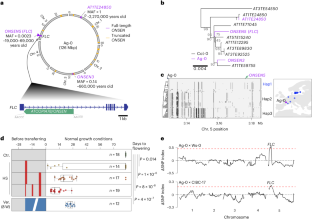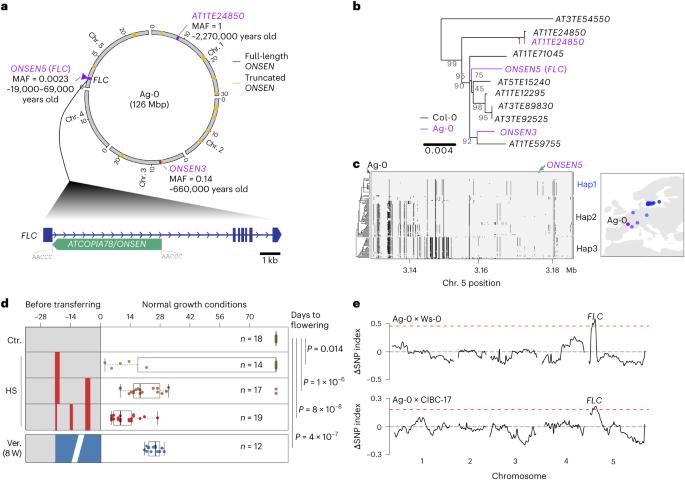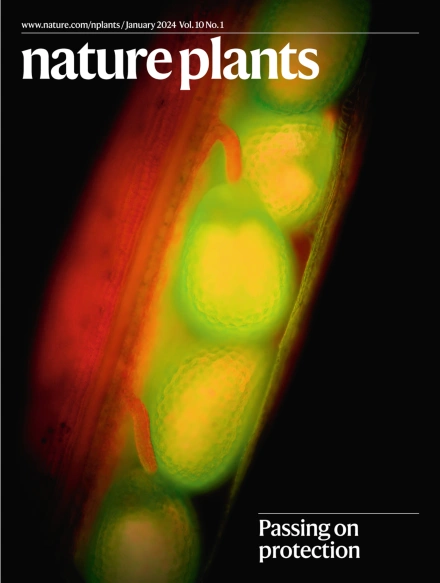逆转录转座子驱动的FLC环境调控导致对除草剂的适应性反应
IF 15.8
1区 生物学
Q1 PLANT SCIENCES
引用次数: 0
摘要
转座元件的调动是突变的强大来源。在植物中,一些可转座元件会对外界线索做出反应,从而推动了自然转座可产生对环境敏感的等位基因以适应环境的假说。在这里,我们报告了拟南芥花卉抑制基因 FLOWERING LOCUS C(FLC)第一个内含子中一个逆转录转座子插入的详细特征,并发现了它在适应中的作用。插入突变通过影响编码转录本和非编码转录本之间的平衡来提高 FLC 对环境的敏感性,从而加速开花。这种平衡由 DNA 甲基化调节,并由 IBM2(一种参与处理内含子异染色质序列的因子)协调。FLC 的胁迫敏感等位基因已在经常进行化学除草的种群中扩散,我们的研究表明,逆转录转座子驱动的生命周期加速是对除草剂应用的快速反应。我们的工作为转座元件驱动的环境敏感等位基因在自然界中赋予适应性反应提供了一个令人信服的例子。本文章由计算机程序翻译,如有差异,请以英文原文为准。


Retrotransposon-driven environmental regulation of FLC leads to adaptive response to herbicide
The mobilization of transposable elements is a potent source of mutations. In plants, several stransposable elements respond to external cues, fuelling the hypothesis that natural transposition can create environmentally sensitive alleles for adaptation. Here we report on the detailed characterization of a retrotransposon insertion within the first intron of the Arabidopsis floral-repressor gene FLOWERING LOCUS C (FLC) and the discovery of its role for adaptation. The insertion mutation augments the environmental sensitivity of FLC by affecting the balance between coding and non-coding transcripts in response to stress, thus expediting flowering. This balance is modulated by DNA methylation and orchestrated by IBM2, a factor involved in the processing of intronic heterochromatic sequences. The stress-sensitive allele of FLC has spread across populations subjected to recurrent chemical weeding, and we show that retrotransposon-driven acceleration of the life cycle represents a rapid response to herbicide application. Our work provides a compelling example of a transposable element-driven environmentally sensitive allele that confers an adaptive response in nature. This study reports the discovery of a retrotransposon insertion in the FLC gene conferring an environmentally dependent control mechanism mediated by DNA methylation that drives the adaptation of natural Arabidopsis populations to herbicide exposure.
求助全文
通过发布文献求助,成功后即可免费获取论文全文。
去求助
来源期刊

Nature Plants
PLANT SCIENCES-
CiteScore
25.30
自引率
2.20%
发文量
196
期刊介绍:
Nature Plants is an online-only, monthly journal publishing the best research on plants — from their evolution, development, metabolism and environmental interactions to their societal significance.
 求助内容:
求助内容: 应助结果提醒方式:
应助结果提醒方式:


